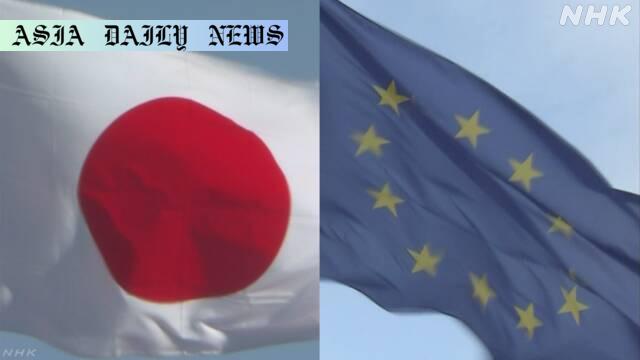Gray-zone situations: Japan & EU unite to guide Southeast Asia’s coast guards in resolving maritime conflicts effectively.

Introduction to Gray-Zone Situations
The term ‘gray-zone situations’ refers to scenarios that exist between normal peacetime and overt conflict. These situations often involve acts of coercion that fall short of armed attacks but may destabilize or pressure a state. In the context of international waters and maritime law, countries worldwide are increasingly dealing with gray-zone challenges, particularly those involving territorial disputes, illegal navigation, and undersea infrastructure sabotage. Recognizing the growing need for collaborative strategies to address such scenarios, Japan and the European Union (EU) are hosting a joint seminar aimed at empowering Southeast Asian coast guards with the knowledge and skills necessary to tackle gray-zone situations effectively.
Details of the Collaborative Seminar
The seminar, set to be hosted in Bangkok, Thailand, over two days, represents the inaugural collaboration between Japan and the EU in this domain. Officials from five Southeast Asian nations, including the Philippines and Vietnam, will participate in this event. The focus will be on legal and operational preparedness, particularly in areas such as upholding domestic laws, proper conduct of non-military coast guard personnel, and leveraging international law in addressing challenges like undersea cable sabotage.
One of the specialized topics that will be discussed is the importance of non-military coast guard intervention in handling intrusions into territorial waters. Such interventions are designed to prevent military escalation, which could further complicate the situation. By encouraging the adherence to established laws and the rule of international norms, the seminar is expected to strengthen maritime governance across Southeast Asia.
Addressing Key Challenges: Cooperation to Counter Security Concerns
A key driver behind Japan and EU’s initiative is the growing activity of China’s government vessels in contested maritime regions, such as Japan’s Senkaku Islands. Despite Japan’s control and administration over the area, it faces consistent challenges from Chinese and Taiwanese claims. This makes collaborative efforts, like the Bangkok seminar, crucial for building a unified international response. Furthermore, the seminar emphasizes applying international frameworks to address threats such as the sabotage of undersea communication cables, which have become a growing concern in Europe and beyond.
The Broader Implications: Strengthening Rule of Law and Regional Resilience
At its core, the Bangkok seminar seeks to underline shared values like the rule of law, territorial sovereignty, and mutual cooperation. It highlights how countries in Southeast Asia, which often find themselves on the frontline of gray-zone scenarios, can be better equipped—not just independently, but with coordinated efforts with major global powers like Japan and the EU. These discussions go beyond the immediate issues at hand, such as undersea sabotage or maritime territorial disputes, fostering the long-term resilience and integrity of the international order in the Indo-Pacific region.
Conclusion: A Step Towards Unified Global Action
In conclusion, Japan and the EU’s initiative represents meaningful progress in collectively addressing the increasingly complex challenges posed by gray-zone situations. By cultivating greater cooperation among nations with shared values, this effort sets an example for the rest of the world, demonstrating how collaboration, legal preparedness, and adherence to international norms can mitigate risks and ensure a more secure and stable global environment. This seminar is not just a response to current issues but a proactive step towards a unified strategy for future challenges in the maritime domain and beyond.
Commentary
Analysis of Proactive Measures to Combat Gray-Zone Challenges
The decision by Japan and the European Union to jointly host a seminar focusing on gray-zone situations is not just a timely response to growing maritime challenges but also a showcase of effective international collaboration. By combining resources and expertise, the initiative addresses a critical need for operational and legal preparedness among Southeast Asian nations. This highlights the importance of working together to tackle shared global challenges, especially in regions like the Indo-Pacific, where geopolitical tensions are steadily rising.
Significance of Non-Military Approaches
One of the commendable aspects of this initiative is its focus on non-military coast guard operations. Situations involving territorial disputes or sabotage are inherently sensitive, and the involvement of military forces often risks amplifying tensions rather than solving them. By empowering coast guards and focusing on legal frameworks, the seminar encourages a peaceful, law-based resolution of conflicts. This approach not only reduces immediate risks but also sets a precedent for how similar conflicts can be handled elsewhere.
Broader Implications for Regional Stability
While the seminar primarily targets maritime challenges, its implications extend far beyond that. It symbolizes a concerted effort to maintain the rule of law amidst rising assertiveness by certain nations, particularly in contested waters. The inclusion of international frameworks and the focus on damage prevention, such as undersea cable sabotage, suggest a forward-thinking approach that anticipates future global security concerns. Southeast Asia’s participation underscores its strategic significance and the necessity of bolstering its capabilities as an integral part of the global supply chain and maritime environment.
Final Thoughts
In conclusion, this collaborative effort is a much-needed step towards countering gray-zone challenges. It emphasizes multilateralism, shared values, and collective action as antidotes to unilateral provocations and coercion. As geopolitical landscapes keep evolving, such initiatives will likely define the contours of effective international governance in the future. The cooperation between Japan and the EU inspires confidence that nations with shared values can come together to uphold global norms and foster stability in an increasingly uncertain world.


